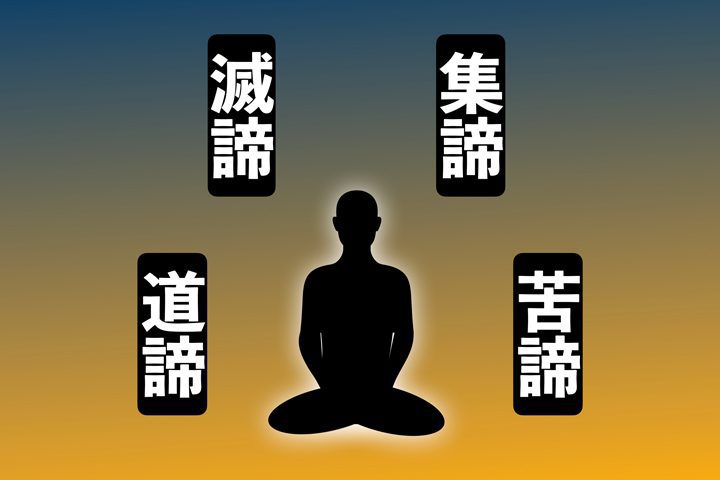
Peer recovery support groups are reliable resources for people to maintain their sober living choices. However, different groups uphold different beliefs about and paths to sobriety. If you recognize the value of group interaction, it’s simply a matter of finding a program that fits your world view. Refuge Recovery is a possible option.
Spiritual & Secular Support Systems
In most traditional addiction treatment programs, people are introduced to Alcoholics Anonymous (AA) or Narcotics Anonymous (NA). Founded in 1935 and 1953 respectively, these programs follow a 12-Step process and, from inception, included aspects of Christianity. While AA, NA, and other 12-step programs still acknowledge God and a higher power, believing that “a Power greater than ourselves could restore us to sanity”, the organizations have strived in recent years to make people understand that their individual definition a higher power is what matters, and they don’t have to follow the Christian faith to find benefits within AA, NA, or other Anonymous-based programs.
While numerous individuals believe that a spiritual compass guiding their recovery process helps keep them on course, many secular organizations support people who prefer not to have spiritual influence, including LifeRing, Secular Organizations for Sobriety, SMART Recovery, and Women for Sobriety.
Noah Levine Founds Refuge Recovery
To provide another alternative, Noah Levine founded Refuge Recovery in 2016, a non-profit organization that offers an abstinence-based, non-theistic program “grounded in the belief that Buddhist principles and practices create a strong foundation for a path to freedom from addiction.” Levine is the author of Refuge Recovery, Dharma Punx, and creator of the movie “Meditate and Destroy”.
Refuge Recovery is based on a foundation of The Four Noble Truths, listed verbatim here:
- Addiction creates suffering. We take stock of the suffering we have experienced and caused as addicts.
- The cause of addiction is repetitive craving. We investigate the causes and conditions that led to addiction and begin the process of letting go.
- Recovery is possible. We come to understand that recovery is possible, and take refuge in the path that leads to the end of addiction.
- The path to recovery is available. We engage in the process of the Eightfold Path that leads to recovery.
These Truths are inspired by Siddharta Gautama Buddha and the philosophy that “the individual is ultimately responsible for his or her level of suffering because, at any point, one can choose not to engage in the kinds of attachments and thought processes which cause suffering.”
Much of the organization’s literature explains that it wants all people to feel welcome, as well as safe. “There is no requirement to call yourself a Buddhist to benefit from the Refuge Recovery program. Our program uses non-religious, early Buddhist principles as the heart of our program. We believe early Buddhist principles are a practical and applicable humanist psychology that teaches us that we all have the power to relieve suffering through our own efforts.”
Refuge Recovery states that it’s “a community that embraces all people regardless of age, race, class, culture, nationality, ethnic origin, religious/spiritual background, gender, gender identity, sexual/affectional orientation, marital status, family structure, social identity, physical ability or appearance, mental health, legal standing, and educational or socioeconomic status.”
Refuge Recovery’s Process
The organization provides various tenets for participants to use as guideposts with the understanding that “all individuals have the power, as well as the potential, to release themselves the suffering caused by substance abuse.” Further, “no one can recover for you—you have to do the work yourself.” Refuge Recovery groups provide recovery support for all forms of addiction, including drugs, alcohol, food, sex, technology, gambling, relationships, spending, codependency, and others.
To help reinforce abstinence and recovery, the organization provides eight principles, referred to as the Eight-Fold Path which, when used simultaneously, help people develop a life free from addiction. Here’s a brief outline of each factor:
- Understanding: a multi-purpose factor that helps people take responsibility “for the relationship that we have to our own life experience”
- Intention: establishing a way of life that is non-harmful
- Communication and community: an opportunity to practice honesty, openness, and support of others
- Action: abstinence from all behaviors and substances that cause suffering, and active forgiveness of self and the people placed in harm
- Livelihood and service: being of service to other people and generous with attention, resources, and energy to affect positive change
- Effort: incorporating certain practices such as yoga, meditation, and “wise actions”; as well as the patience and time to develop these and other skills outlined in the Four Foundations
- Mindfulness: a dedicated practice of mindful meditation
- Concentration: cultivating the ability for singular focus to help resist cravings and temptations
The concepts of mindfulness and meditation feature heavily in the support process.
The Four Foundations of Mindfulness
- Body and breath
- Feelings
- Mind states
- Mind objects, or truth
Heart Practice Meditations
- Kindness: Towards all experience
- Compassion and forgiveness: Towards the suffering we experience, and have caused
- Appreciation: Towards pleasure
- Equanimity: Understanding the reality of ongoing change
Refuge Recovery also provides free guided meditations for these principles, as well as other resources to help participants start the process and understand its direction.
Meetings are free, but each group functions independently with the help of donations. Currently there are both in-person and online meetings available. Visit the Refuge Recovery website for more information.
Cottonwood Tucson’s Level of Support
We’re dedicated to ensuring you have all the tools you need to prevent relapse and feel connected to a supportive network. In addition to peer support groups, we also provide access to the CaredFor App to all alumni—learn more here.







